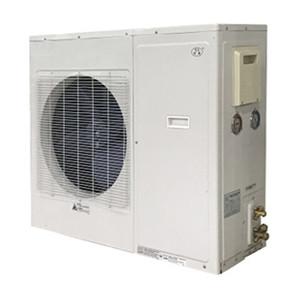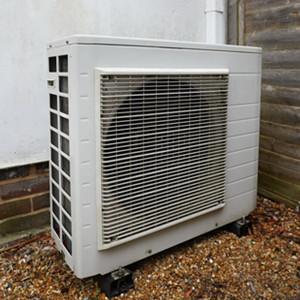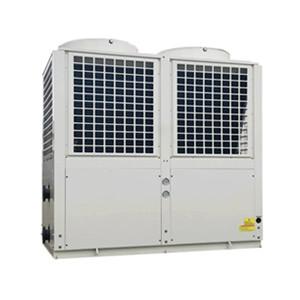Air Source Heat Pumps Pros and Cons
Choosing how to heat and cool your home is an important decision,
especially when it comes to energy bills: according to the Department of
Energy, heating and cooling account for approximately 48% of the energy
consumption of an average household.
More and more homeowners want newer, smarter, and more energy-efficient
technologies, such as air source heat pumps (ASHP).
When considering air source heat pumps, it is very important to fully
consider the advantages and disadvantages of air source heat pump technology.
Below we will tell you one by one.
What is an air source heat pump?
The air source heat pump extracts heat from the air outside your home.
In the case of an air-to-water heat pump, a large fan is placed outside the
home to suck in air. The natural heat in the air is compressed to increase its
temperature, and the resulting heat is transferred to a cylinder of water. The
heated water can then be supplied to your faucet and used in the wet central
heating system. In some cases, air source heat pumps can still extract heat at
temperatures as low as -25°C.
Advantages of air source heat pump:
1. The operating cost is lower than that of petroleum or liquefied
petroleum gas substitutes.
If installed and sized correctly, air source heat pumps are a cheaper
form of heating than oil or LPG boilers. The COP of an air-source heat pump
should be around 3, which means that for every 1 kW of electricity invested to run
it, 3 kW of heat will be obtained from it.
2. Very suitable for use with floor heating.
Floor heating works best at a lower temperature than the radiator. The
air source heat pump is around 45c, which is the ideal temperature for floor
heating.
3. Produce less CO2 emissions.
Because heat pumps are highly efficient and run on electricity, they
produce less carbon dioxide emissions than other heating systems that use
natural gas, liquefied petroleum gas, or petroleum.
4. Very little maintenance is required.
Because the air source heat pump technology has existed for decades, it
has been tried and tested repeatedly, so it is very reliable. Air source heat
pumps use the same technology as our refrigerators and freezers, and they
require little maintenance.
5. Can be used to provide refrigeration in summer
Some air source heat pumps can be placed in a reverse cycle to cool your
property instead of heating it, thereby providing you with cooling and heating
in one unit.
Disadvantages of air source heat pump
1. High upfront cost
For most people, the initial cash outlay is a disadvantage of the heat
pump because it is expensive when you have to buy and install the heat pump for
the first time.
2. Heat supply is lower than boiler
One of the most frequently mentioned shortcomings of air source heat
pumps is that they provide less heat supply than traditional oil and gas
boilers. This may mean that some properties require a larger radiator,
especially if you have a larger room.
3. Additional expenses for installing underfloor heating
Due to the low heat supply, air source heat pumps are most commonly used
for floor heating to make full use of the system. This is because you don't
need that high temperature to operate it.
4. Low efficiency in cold weather
One of the disadvantages of air source heat pumps is that the colder the
outside air, the more difficult it is for the heat pump to extract heat. For
this reason, heat pumps use more electricity in winter, thereby reducing
efficiency.
5. Working noise
Air source heat pumps will produce some noise during operation, but it
must be said that homeowners who generally live in heat pumps think that this
is not one of the serious shortcomings of air source heat pumps.
6. Your house must be well insulated
Since the temperature of hot water produced by the air source heat pump is lower than that of the boiler, the property needs to be well insulated to make it an efficient system.






